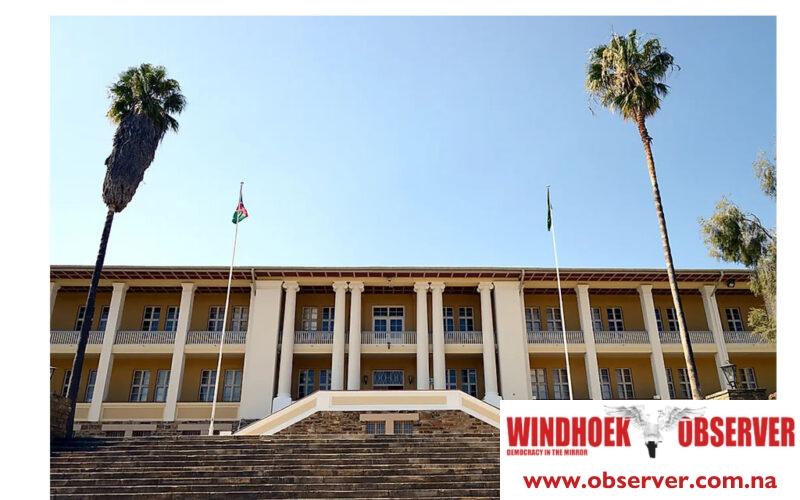Ester Mbathera
The government’s reluctance to implement crucial reforms is overshadowing the promising economic recovery.
This is according to the latest Namibia Quarterly Economic Review (QER) for Q3 2024, compiled by the Institute for Public Policy Research (IPPR).
The IPPR criticised the government for delaying the implementation of legislative reforms, such as the National Equitable Economic Empowerment Bill (NEEEB), the Namibia Investment Promotion Act (NIPA), and the Minerals Act.
The report claims that leaders have passed down the reforms to one another.
“On economic policy, the past two terms have been characterised by dithering, uncertainty and confusion and the sound of cans being constantly kicked down the road,” reads the report.
The report is particularly critical of the absence of decisive reforms that risk stalling projects in sectors like green hydrogen and oil and gas exploration.
“Namibia stands on the verge of historically unprecedented inflows of foreign direct investment, but the rules of engagement for foreign investors are anything but clear,” reads the report.
The late President Hage Geingob sought to tackle the challenges the country faced in attracting foreign investment by establishing the Namibia Investment Promotion and Development Board (NIPDB) in March 2020.
The NIPDB, which operates directly under the Presidency, was created to take the place of the Namibia Investment Centre under the Ministry of Industrialisation and Trade.
However, according to the report, this initiative did not completely align with the suggestions put forth by the High-Level Panel on the Namibian Economy in 2019.
The panel recommended transforming the Namibia Investment Centre into an Export Promotion Centre to specifically encourage investments focused on export markets.
“The appointment of Ipumbu Shiimi, the creation of the NIPDB, and the desire to exploit Namibia’s green hydrogen potential were to play important roles throughout the following years. Ironically, Namibia had just taken great pains to portray itself to the world at COP26 as a renewable energy and green hydrogen model economy when Shell and then TotalEnergies struck significant offshore oil and gas resources. The government barely missed a beat in deciding to exploit these new-found resources, which have dominated the economic landscape in the more than two years since they were announced,” reads the report.
The report argues that, as long as the government avoids taking firm steps toward restructuring its public enterprises, the investment climate will remain clouded by uncertainty.
“Although Air Namibia was liquidated, the 2024 SWAPO manifesto promises to revive it. MTC has been partially privatised (mostly to the GIPF), but as a virtual monopoly and without a strategic partner. Namcor, Namibia’s supposed champion at the heart of its oil and gas story, was exposed yet again as unfit to carry the nation’s hopes. No new public-private partnerships have been created seven years after passing the PPP Act,” reads the report.
The IPPR also criticised the government’s hesitance to address corruption. It referenced the case of Sacky Shanghala and Bernhard Essau, the ministers who resigned following the Fishrot scandal.
The report highlights that the Marine Resources Act of 2015, which partially facilitated fishrot, has yet to be reformed.
“Defence Minister, Peter Vilho resigned in 2021 over allegations of taking kickbacks, but no further action appears to have been taken against him,” read the report.
According to the report, even though the Swapo-led government has been firmly in power since independence, it still shows traits that have influenced economic policy-making throughout most of its tenure.
These traits include the government’s tendency to blame economic difficulties on external factors, such as “world markets” and environmental issues like drought, while failing to recognise shortcomings in domestic policies.
“An extreme reluctance to take difficult decisions that are clearly in the long-term interests of the economy (for example, the bloated public sector and loss-making SOEs that have featured in almost every budget statement since the 1990s. A tendency to float half-baked policy ideas that then hang over the investment landscape like a cloud of uncertainty—the NEEEB and NIPA being just the latest examples,” reads the report.
The IPPR report also points out the government’s focus on individual projects and deals rather than a clear policy framework, which sets out the rules of the economic game and incentivises investors, which all players have to abide by.
“These are serious shortcomings that show no sign of changing, with the path of least resistance invariably being the preferred way forward. Furthermore, it remains unclear exactly who is in overall charge of economic policy and who, if anyone, vets economic initiatives before being made public: the President? His economic advisor? The Minister of Finance? The Director General of the NPC? The Governor of the Bank of Namibia?” read the report.




